8 Healthy Substitutes to Bread
Most breads that you buy in a grocery store are made with highly-processed grains and include preservatives and added sugars. If you are trying to lose weight or avoid processed foods, you might want to consider this list of healthy substitutes to bread.
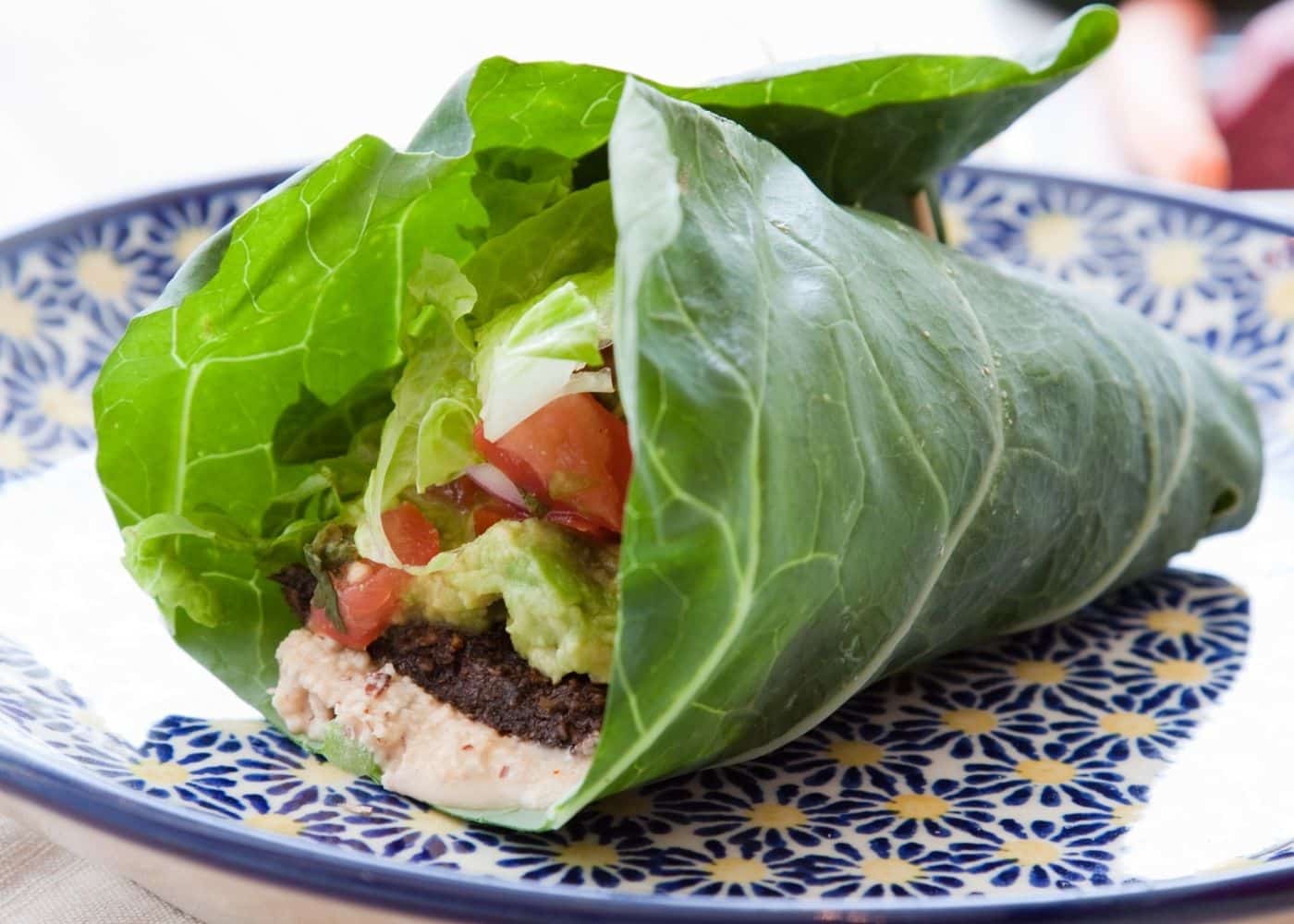
Healthy Alternatives to Bread
If you are choosing to avoid eating bread, these clean eating bread substitutes serve similar purposes while often adding benefits of their own.
Be sure to add in some other sources of healthy carbs like gluten-free grains or fruit if you’re not following a low-carb diet. See my list of the gluten-free carbohydrates.
1. Deconstructed Sandwich
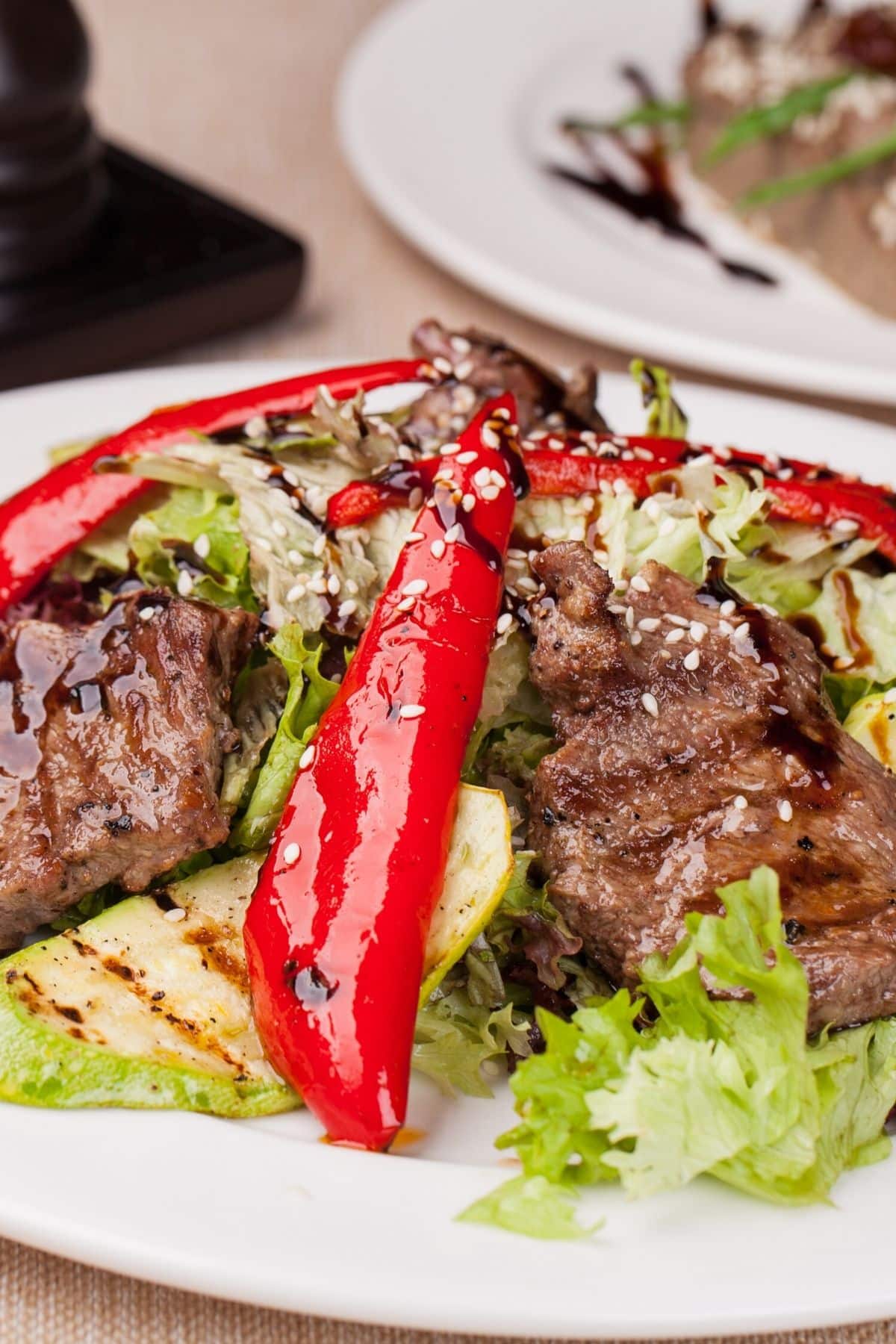
Rather than layering all your sandwich ingredients on bread, simply toss them into a bowl and cover with a simple vinaigrette dressing. Ta-da, you’ve got yourself a “deconstructed” sandwich with all of your favorite flavors.
As a bonus, this gives you the space to add in more greens.
And, to be clear, this salad doesn’t actually have any bread in it. If you want to add in carbs, feel free to toss your salad with some cooked rice, other whole grains, or baked air fryer sweet potato cubes.
2. Sweet Potato Slices
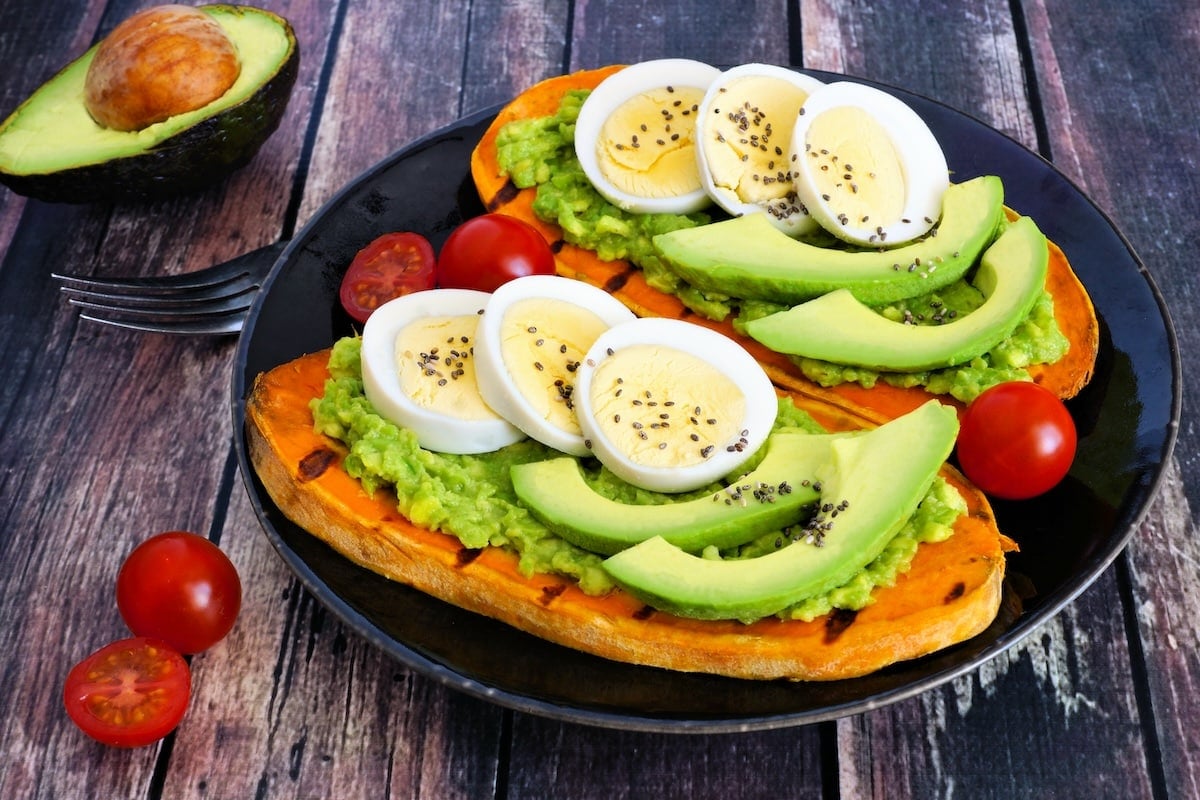
To make a toasted sweet potato slice, thinly slice a sweet potato lengthwise to about ⅓-½ inch thickness, and put in the toaster until pliable. Use in place of bread, buns, or toast.
Sweet potatoes are full of complex carbs and nutrients and make a great alternative to a slice of bread. Slice the sweet potato extra thin to reduce the carbs if you need to. Otherwise, enjoy your sweet potato toast exactly as you would regular bread.
This is one of my favorite healthy breakfast ideas for kids too! Just add their favorite toppings.
3. Rice Cakes
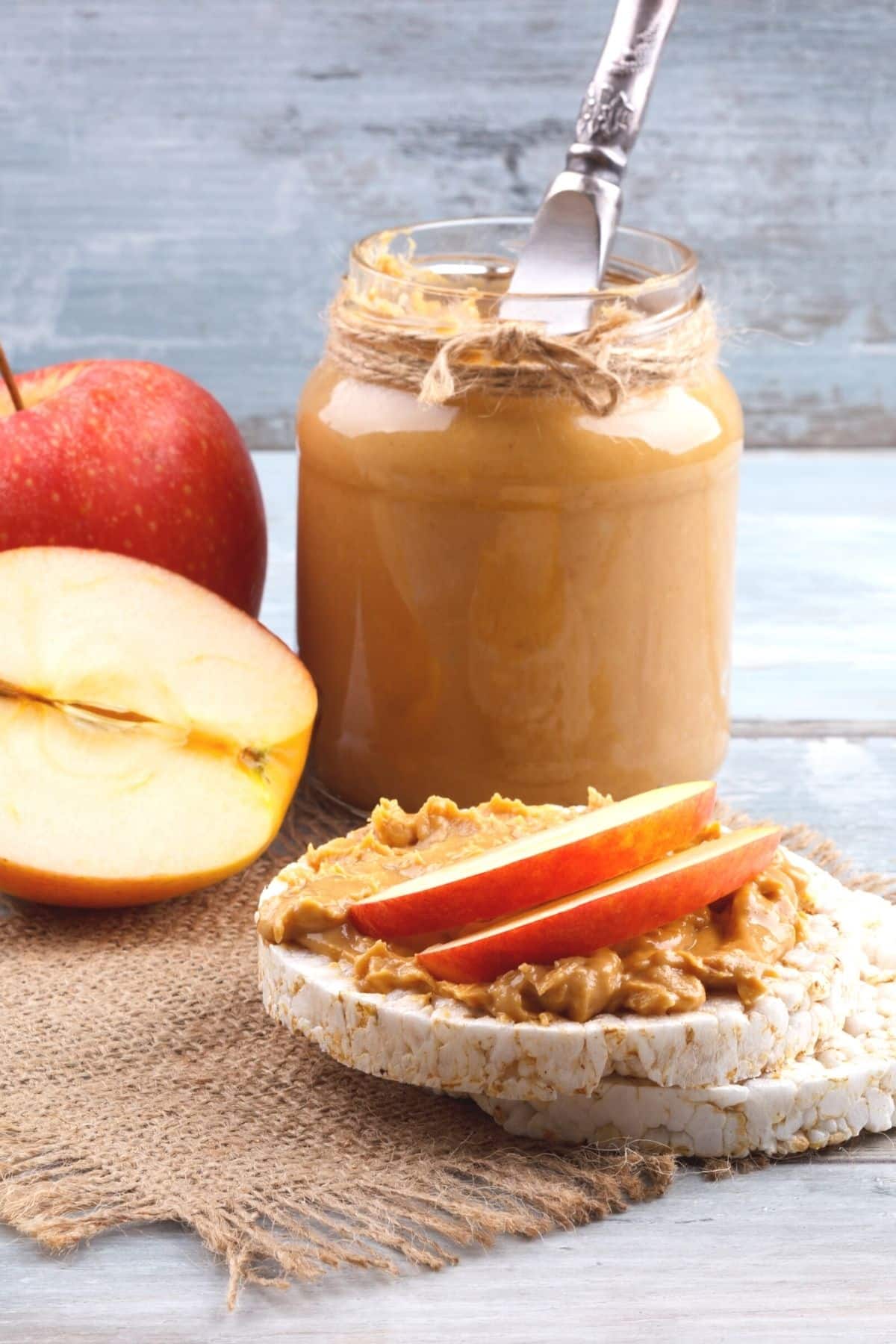
Using rice cakes in place of bread makes for a light lunch or a great snack. Simply layer with toppings like turkey slices and avocado, or peanut butter and apple slices.
Again, rice cakes aren’t necessarily low-carb, but they are almost always gluten-free and do have some nutritional benefits.
See my complete list of healthy gluten-free and dairy-free snacks.
4. Lettuce Wraps
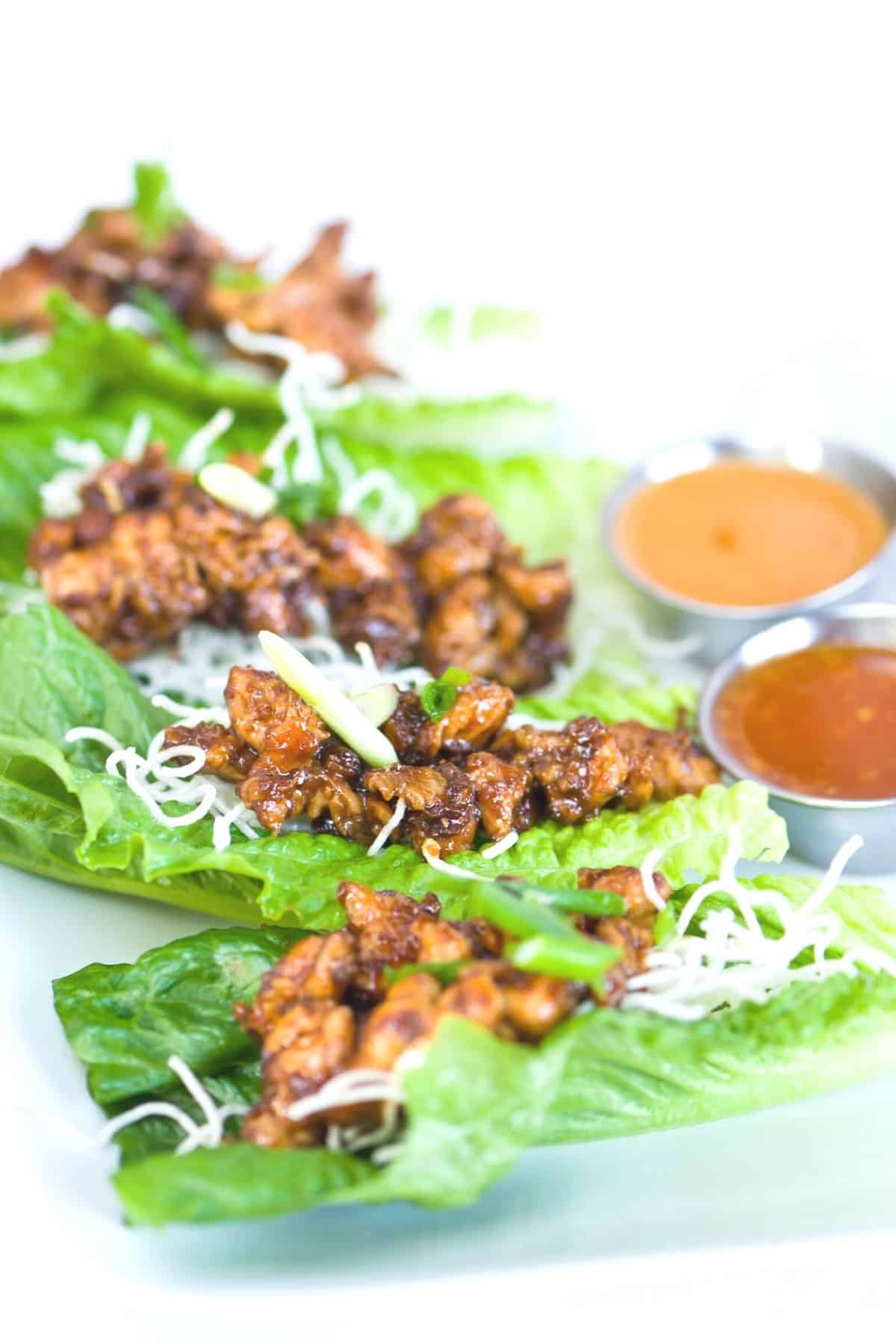
Use lettuce wraps in place of tortillas, sandwich wraps, or even hamburger buns for added nutrition. See my recipe for Ground Chicken Lettuce Tacos.
Try to use romaine lettuce for the largest and thickest leaves. Romaine is also very neutral in flavor and has nutrition too (it’s on my list of the best green leafy veggies). The crunch is very satisfying and makes for a great low-carb bread substitute!
Butter lettuce is another great option, or you could also try collard greens.
5. Rice Paper Rolls
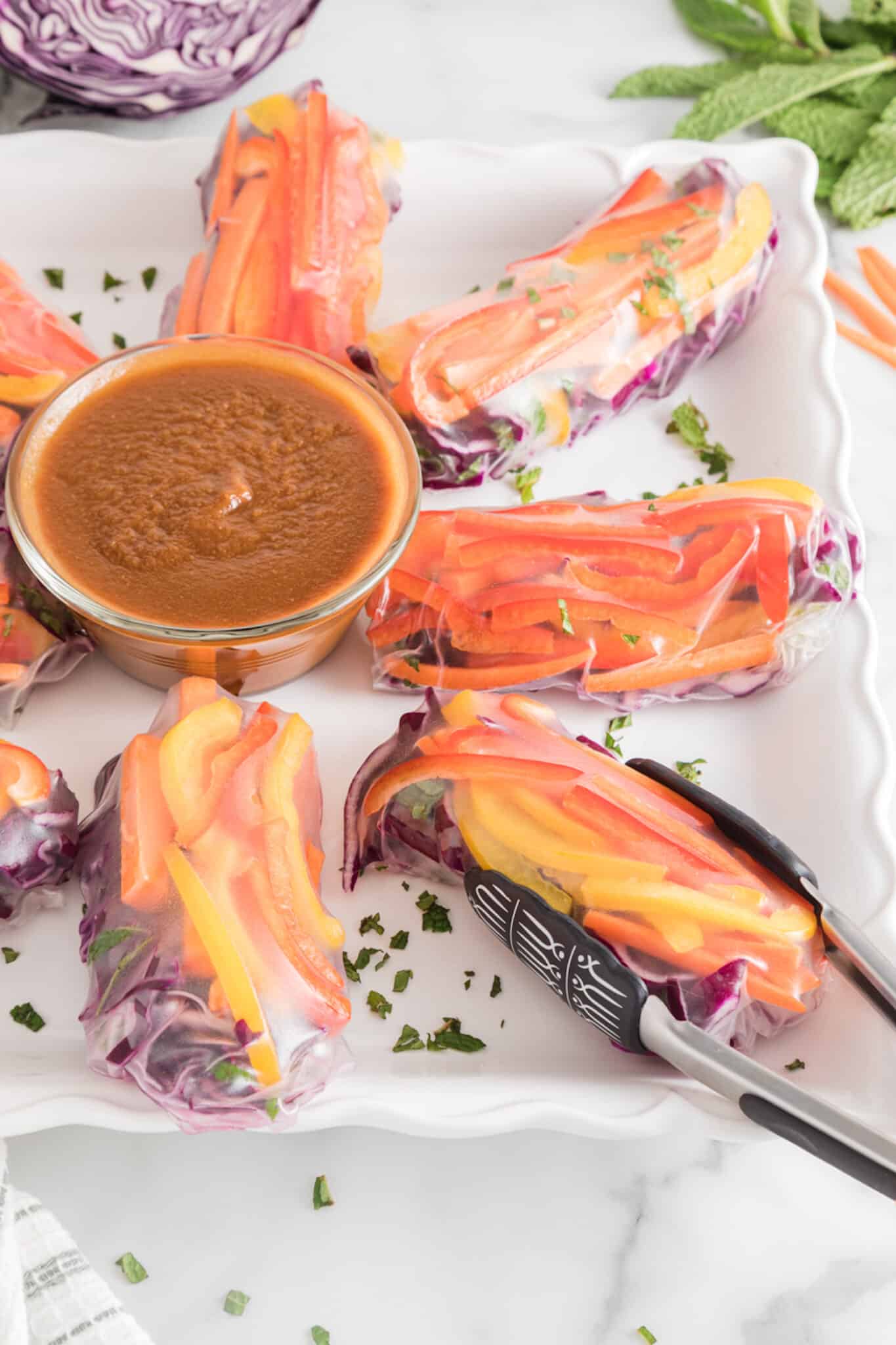
Use rice paper as a bread substitute to wrap up sandwich goodies like turkey slices, lettuce, and tomatoes.
Rice paper does have carbs, but it’s usually less processed than most breads you’ll find in grocery stores. It’s naturally gluten-free which is perfect for people with celiac disease or non-celiac gluten sensitivity. Just be sure to read the label of the rice paper package to make sure there are no cross contaminations.
See my recipe for Healthy Summer Rolls (pictured above).
6. Nori Wraps
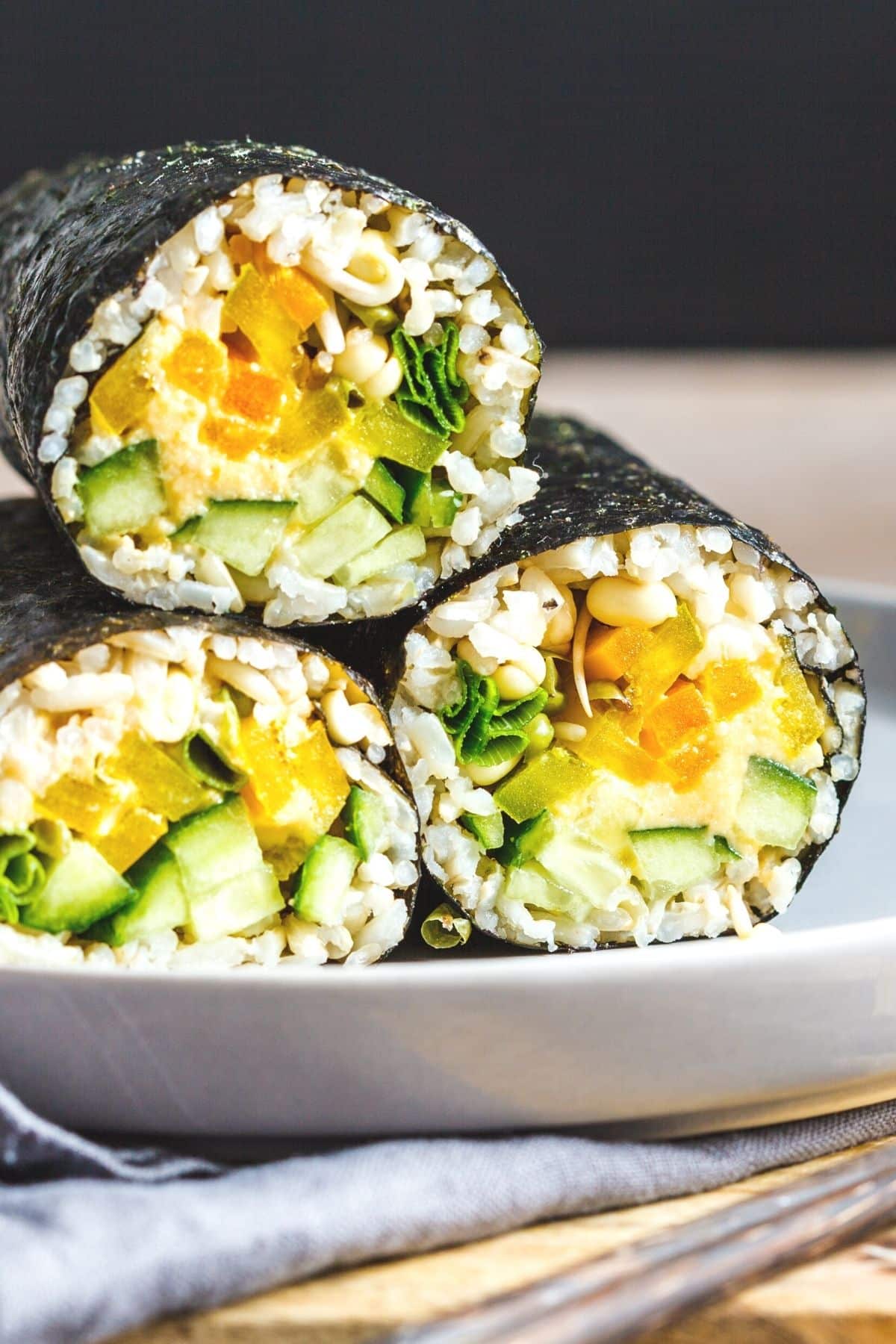
Nori takes the place of bread as another wrap option while providing amazing nutrients and minerals.
Use for an Asian-inspired wrap including cooked rice (use cauliflower rice for low-carb diets, and julienned veggies like carrots). Add sliced avocado and a dash of tamari or coconut aminos for a terrific meal.
7. Egg Wraps
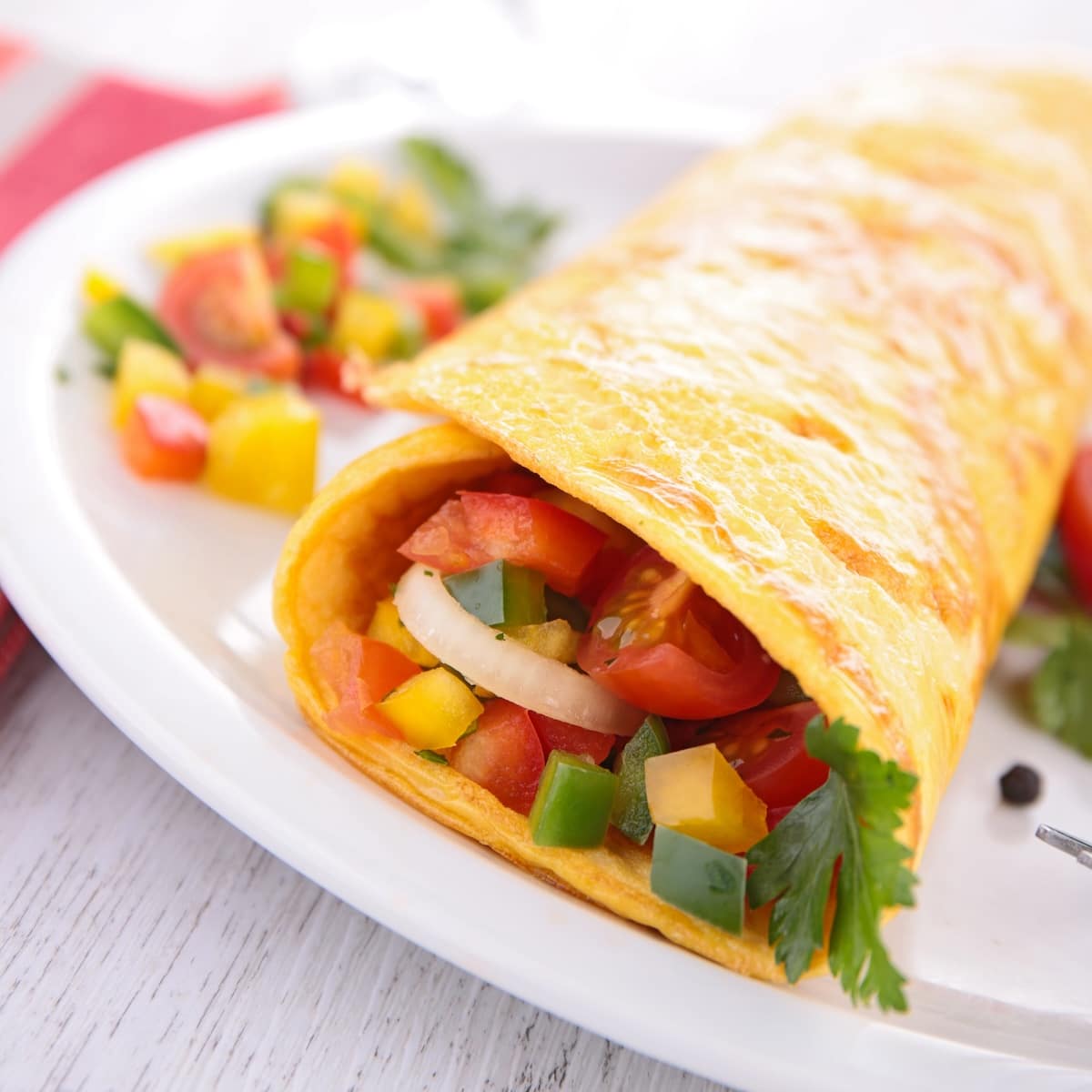
Egg wraps are the new Keto alternative to bread (also called cloud bread). They are essentially a very thin omelet that can be used instead of a grain-based tortilla. They add protein, healthy fats, and nutrients and can make a meal more satisfying.
Stuff with bell peppers, onions, and spinach for a bread-free breakfast burrito!
If you have an egg allergy or sensitivity, you can use chickpea flour (or any other gluten-free flour) as a good option.
8. Grain-Free Tortillas
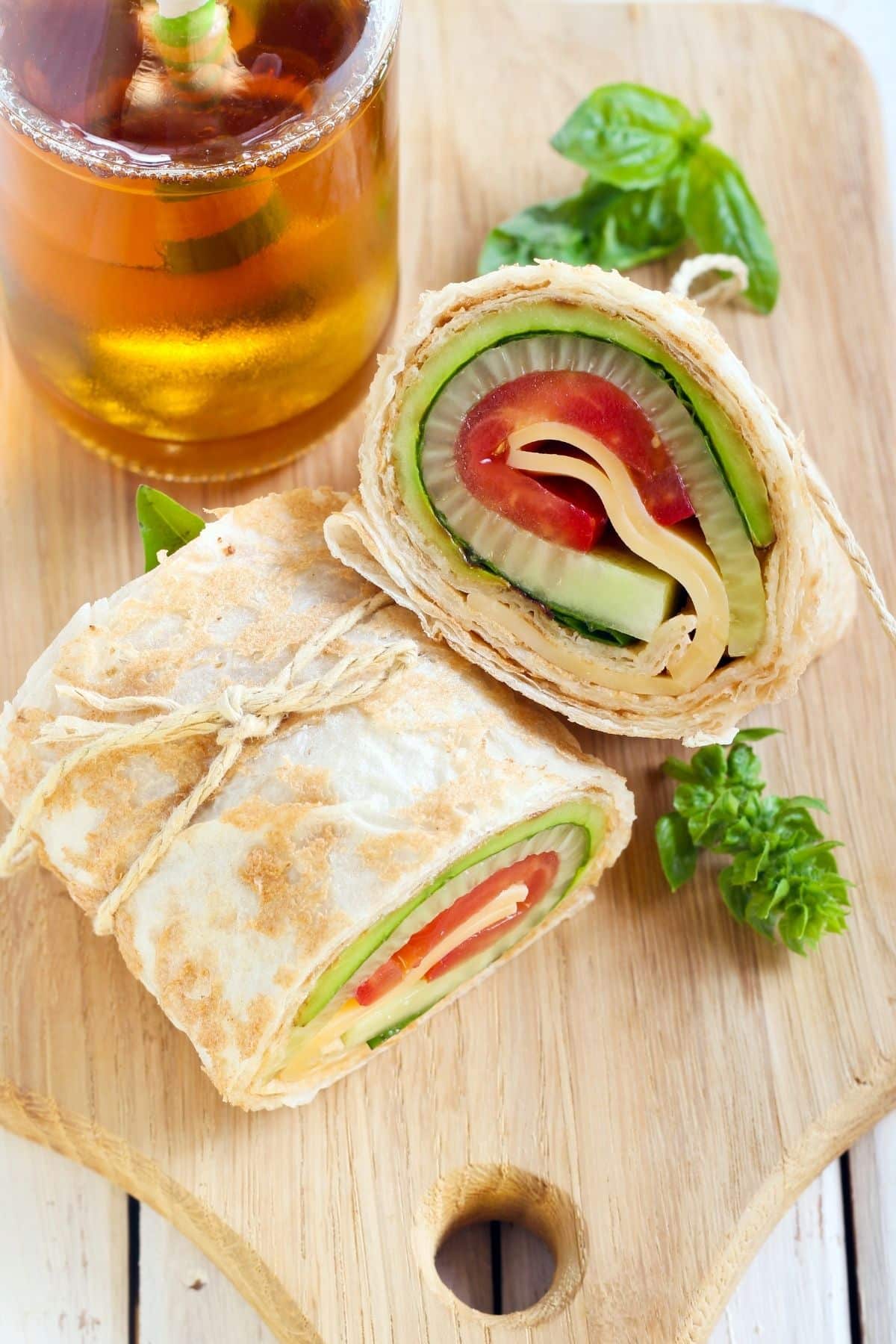
There are many options for grain-free tortillas on the market now.
Use one or two as a sandwich wrap or to turn a grilled cheese into a quesadilla.
Many are made with almond flour, but you can also find grain-free tortillas made from cassava flour and other alternative flours as opposed to wheat flour. You can also try corn tortillas which are naturally gluten-free.
Bonus Recommendation: Homemade Juice Pulp Crackers
If you like to make fresh vegetable juices like I do, then you can actually make grain-free crackers using the pulp leftover from juicing. These yummy crackers are a great bread substitute as they are filling and a good source of fiber.
These homemade veggie juice crackers are filled with flavor and can be topped with anything you like, including cream cheese, tuna salad, or whatever you like!
Try these Carrot Crackers or my Green Juice Pulp Crackers.
Healthier Bread Choices
If you choose to stick with bread, there are still plenty of healthy options to choose.
Homemade Bread
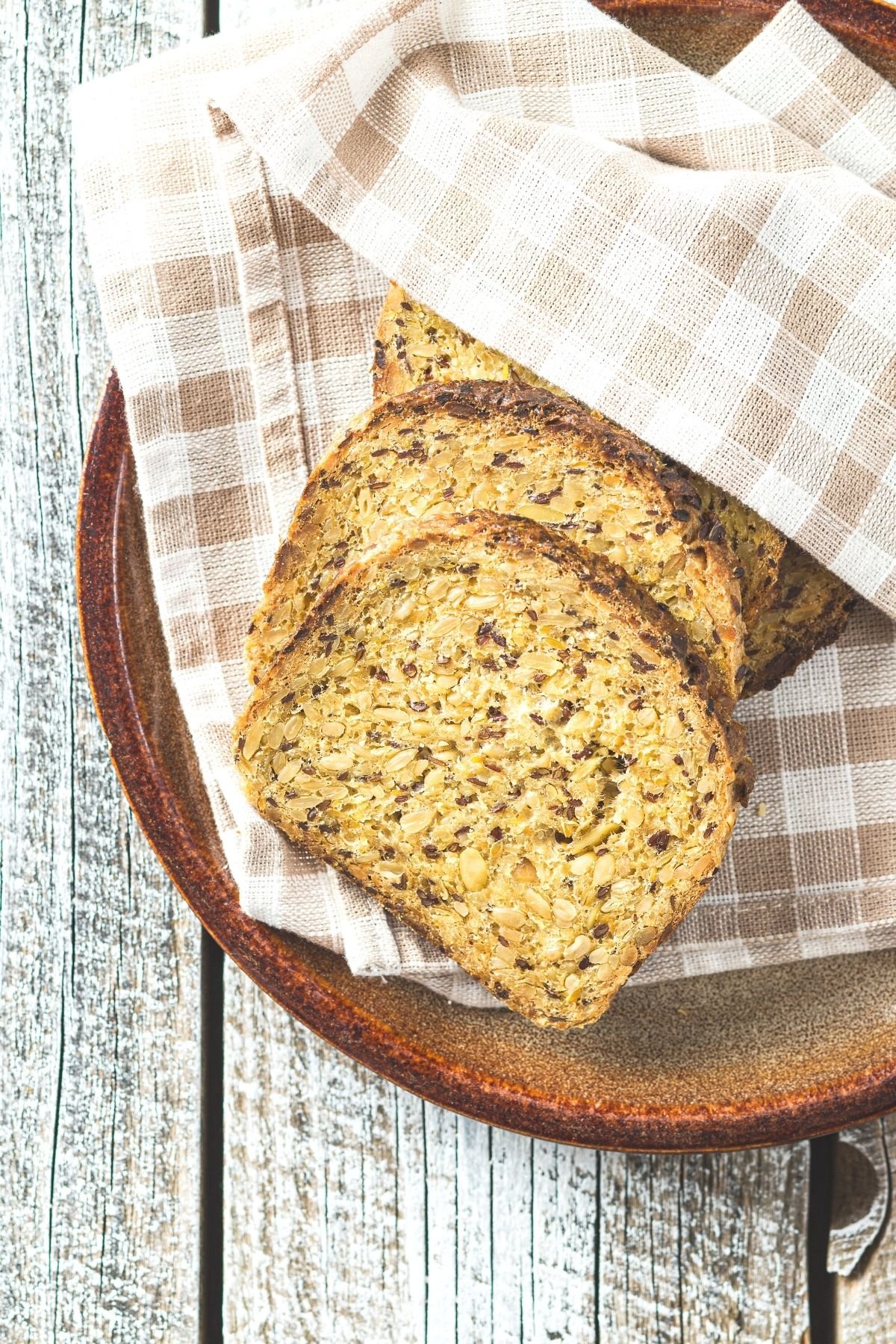
Baking your own bread allows you to control the ingredients. You can skip the added sugars, preservatives, and bleached flour for more wholesome additions like nuts, seeds, and sprouted flour.
You’ll also save money by avoiding overpriced bakery breads or gluten free breads–and gain a sense of accomplishment from doing it yourself!
Don’t miss my gluten-free Buckwheat Bread recipe.
Sourdough Bread
Fermenting bread dough, like in sourdough bread, makes it easier to digest and can increase the nutrients. Our ancestors have been fermenting bread for centuries as a method of preservation.
Choose a bakery-made sourdough bread or make your own.
Be sure to use gluten-free flours if you are on a gluten-free diet.
Some Healthy Brands You Can Buy
If you want to continue the convenience of picking up bread at your local store, these are some better options:
- Ezekiel 4:9 (gluten-containing and gluten-free options)
- Bread Srsly Gluten-Free sourdough (gluten-free)
- Silver Hills Sprouted Bakery (gluten-containing and gluten-free options)
- Rudi’s (gluten-containing and gluten-free options)
- Julian Bakery (grain-free)
- Barely Bread (grain-free)
- Dave’s Killer Bread (gluten-containing)
- Trader Joe’s sprouted or whole wheat varieties (gluten-containing)
- Whole Foods Bakery, fresh baked options (gluten-containing)
Conclusions
If you choose not to eat bread, alternatives like grain-free tortillas, egg wraps, and sweet potatoes are great replacements. These healthy bread substitutes can help fill the gap and leave you nourished and satisfied!
Don’t Miss These Clean Eating Resources
Don’t forget to join my newsletter list to get exclusive clean eating recipes and tips. The newsletter is 100% free with no spam; unsubscribe anytime.
About the Author: Carrie Forrest has a master’s degree in public health with a specialty in nutrition and is a certified holistic nutritionist. She is a top wellness and food blogger with over 5 million annual visitors to her site. Carrie has an incredible story of recovery from chronic illness and is passionate about helping other women transform their health. Send her a message through her contact form.
Note: this post is for informational purposes only and is not intended as medical advice. Please consult your healthcare provider for recommendations related to your individual situation.


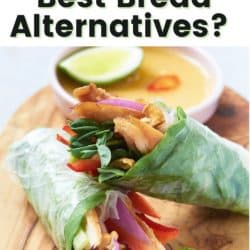


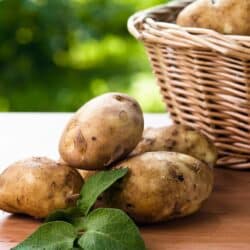



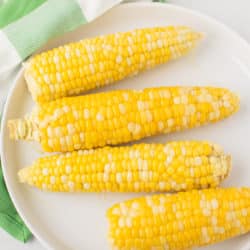
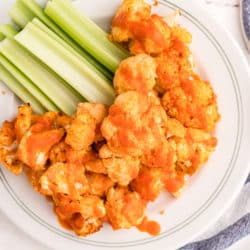

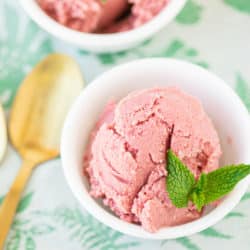








I don’t have an issue with carbs. They form part of a balanced diet. I just want some alternatives as bread can be a bit boring and make me feel a bit “bloaty” if I am out running subsequent to eating it.
This article might be helpful then! https://www.cleaneatingkitchen.com/best-gluten-free-carbohydrate-sources/
I buy my own organic cereal grains (hard red wheat, barley, etc.) and grind my own flour to make my own bread. Delicious and very healthy!
Fantastic!